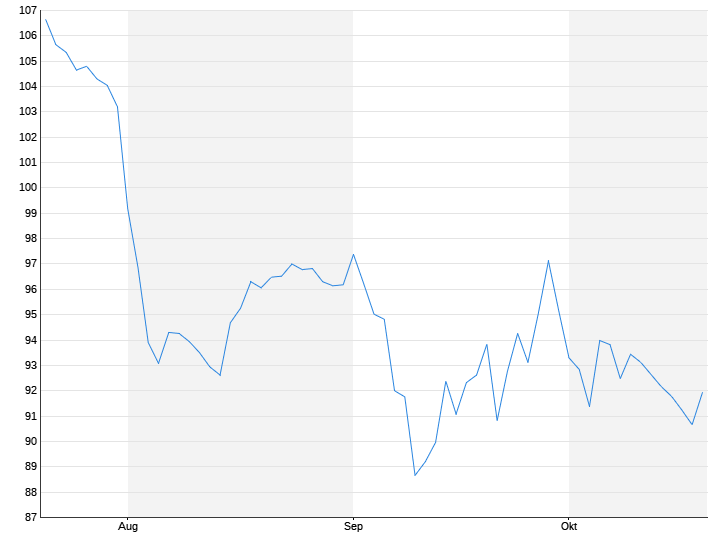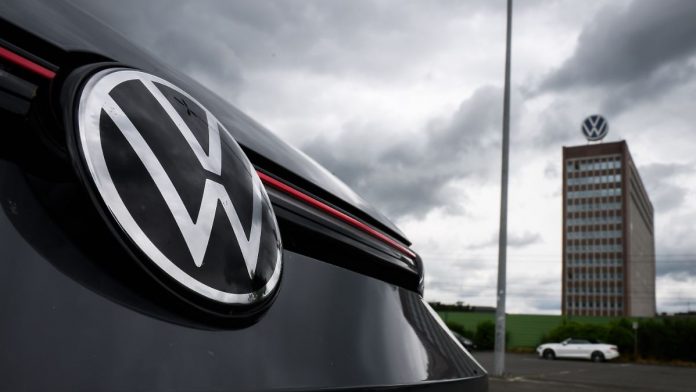Partial retirement is not enough
VW cancels job guarantee and considers plant closures
This audio version was artificially generated. More info | Send feedback
Volkswagen pulls out the red pencil and puts everything to the test. After three decades, the car manufacturer is terminating job security. One reason is the massive attack from competition from the Far East. The costs must fall massively. The employee representatives announce resistance.
The situation at Europe's largest car manufacturer, Volkswagen, is getting worse. As part of its savings program, the VW core brand is no longer ruling out plant closures and redundancies for operational reasons, as the company announced after a management meeting. The agreement concluded with the works council to secure employment will be terminated. It ruled out operational layoffs until 2029. Employee representatives and the union were horrified.
From the perspective of the board, the core VW brands need to be comprehensively restructured, it said. “In the current situation, plant closures of vehicle manufacturing and component locations can no longer be ruled out without rapid countermeasures.” In addition, the previously planned job cuts through partial retirement and severance payments are no longer sufficient to achieve the targeted savings targets.
IG Metall and the works council are mobilizing against plans


The union and works council immediately announced massive resistance. The plans are “an attack on our employment, locations and collective agreements,” she explained in a special edition of the works council newspaper “Mitdeterminieren”. We will defend ourselves against this bitterly,” said Cavallo. “With me, there will be no VW plant closures!” Lower Saxony's IG Metall district manager Thorsten Gröger spoke of an “irresponsible plan” that “shakes the foundations of Volkswagen.”
When asked, VW has not yet given specific figures as to how many of the approximately 120,000 jobs in Germany could be eliminated. There was also no information yet on possible locations that could be closed. According to the works council, the brand board believes that at least one vehicle factory and one component factory in Germany is unnecessary.
Lower Saxony's Prime Minister Stephan Weil called on VW to avoid site closures. According to the statement, it is undisputed that there is a need for action at VW, said the SPD politician, who also sits on the VW supervisory board. But VW must first examine all other options for reducing costs. “We expect that the question of closing locations simply does not arise through the successful use of alternatives. The state government will pay particular attention to this.”
The economic policy spokesman for the SPD parliamentary group, Bernd Westphal, said: “The news worries me very much. The SPD parliamentary group stands firmly on the side of the employees and expects constructive discussions in the interests of the workforce. With all understanding for the challenges of the automotive industry with regard to increasing international competition, high energy costs and major investment needs in the Transformation, plant closures and job cuts are not a convincing strategy. On the contrary: VW has earned very well in Germany for decades. The automobile manufacturers must now do everything they can to become competitive again, through technological advances, quality and affordable products of measures that support the automotive industry on this path, such as improved depreciation options and an expanded research allowance.”
First factory closure in more than 30 years
The last time VW closed a production site was more than 30 years ago: in 1988, VW closed its factory in Westmoreland in the USA. A VW factory has never been closed in Germany. In addition to the main plant in Wolfsburg, VW has factories in Hanover, Emden, Osnabrück, Braunschweig, Salzgitter, Kassel, Zwickau, Dresden and Chemnitz. The Audi subsidiary recently put its plant in Brussels to the test.
CEO Oliver Blume justified the course with the worsening situation. “The European automotive industry is in a very challenging and serious situation. The economic environment has become even more difficult,” he said, according to the statement. In order to achieve the targeted earnings improvements of ten billion euros by 2026, costs would now have to fall more than previously planned. “The headwind has become significantly stronger,” said brand boss Thomas Schäfer, according to the announcement. “We therefore have to step up our game now and create the conditions to be successful in the long term.” According to “Handelsblatt” there are up to four billion euros that need to be saved additionally.
Conflict between Blume and the works council
For the first time since Olive Blume took office almost exactly two years ago, VW is heading towards a massive conflict with the employee side. Unlike his predecessor Herbert Diess, who regularly clashed with the powerful works council, Blume had so far coordinated with the works council largely quietly. He left the specific cost-cutting measures to his brand managers. Now Cavallo asked him to get directly involved in the discussion about the brand. In the end, the problem of the core brand is also the problem of the CEO.
The core brand Volkswagen has been struggling with high costs for years and is far behind its sister companies such as Skoda, Seat and Audi in terms of returns. A savings program launched in 2023 should bring about a turnaround here and improve the result by ten billion euros by 2026. Among other things, personnel costs in administration should be reduced by 20 percent. VW has so far relied on partial retirement and severance pay when it comes to staff reductions; corresponding programs were expanded again in the spring and 900 million euros were set aside for severance payments of up to 474,000 euros for particularly long-serving employees.


